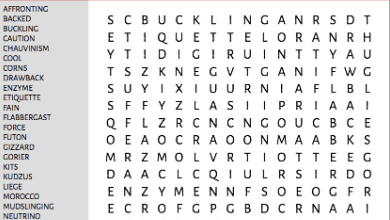The Financial Benefits of CRM Adoption in Roofing

Success in the cutthroat roofing industry depends not only on producing high-quality work but also on managing client relationships skillfully.
In the toolbox of roofing contractors, customer relationship management (CRM) software has become a potent weapon because of its numerous financial advantages that have a direct influence on profitability.
In this article, we explore the major financial benefits of CRM for Roofers adoption, emphasizing the transformative power of this technology and how it may increase profitability.
Incorporating a CRM system can significantly enhance the efficiency and profitability of roofing businesses by streamlining customer interactions and improving project management. For those interested in seeing a real-world example of a company that has successfully integrated CRM into their operations, you can check it out to explore how they have optimized their processes and customer engagement. This practical application demonstrates the tangible benefits of CRM adoption, showcasing how it can lead to increased customer satisfaction and business growth.
Integrating a CRM system not only streamlines operations but also enhances customer satisfaction by providing timely and efficient service. For roofing companies, this means being able to manage projects more effectively and respond to client needs promptly. By adopting CRM technology, businesses can track customer interactions and preferences, leading to more personalized service offerings. For those looking to improve their commercial roofing services, it’s essential to explore options that align with these technological advancements. To see how a well-implemented CRM can transform service delivery, click for service and discover the potential benefits for your business. This approach not only boosts customer loyalty but also drives financial growth by optimizing resource allocation and reducing operational costs.
Streamlining Lead Management
Effective lead and inquiry management is one of the main issues facing roofing companies. Businesses can consolidate lead management procedures, from first contact to conversion, using CRM for Roofers. Contractors can efficiently monitor leads, rank prospects based on factors like geography or project size, and quickly respond to queries by combining lead information into a single platform. This simplified method reduces the possibility of missing out on chances, which raises conversion rates and boosts income.
Improved Customer Communication
In the roofing sector, prompt updates and responses may make all the difference in a customer’s happiness, thus effective communication is essential. Throughout a project, roofers may stay in constant and clear communication with their clients thanks to CRM software. Contractors may utilize CRM solutions to set up appointments, issue automatic reminders, and quickly respond to client inquiries—from first consultations to post-installation assistance. Roofing companies may earn referrals and repeat business by strengthening their customer connections and providing better service, which will lead to consistent revenue development.
Enhanced Project Management
Complex processes are common in roofing projects, necessitating careful planning and coordination to guarantee on-time completion and client satisfaction. CRM systems include strong project management features, enabling contractors to set up comprehensive project schedules, delegate work to team members, and monitor advancement in real-time. Adoption of CRM may drastically cut project durations and overhead costs by optimizing project workflows and getting rid of inefficiencies, which will eventually increase profitability.
Optimized Sales Processes
Effective sales techniques are crucial for gaining new clients and optimizing income potential in a cutthroat industry. Roofing contractors may monitor sales success indicators, automate follow-up conversations, and streamline lead nurturing with the help of CRM software, which gives them access to strong sales automation features. CRM implementation may result in shorter sales cycles, greater conversion rates, and more revenue per sales representative by streamlining sales procedures and providing sales teams with useful information.
Data-Driven Decision Making
A profitable and sustainable business model depends on making well-informed decisions, especially in a dynamic market like roofing. CRM systems provide strong analytics and reporting features that give contractors insightful information about important performance indicators including customer satisfaction ratings, lead conversion rates, and project profitability. Roofing companies may find areas for development, seize new possibilities, and make well-informed decisions that result in financial success by utilizing data-driven insights.
See Also Ensure Client Trust and Protect Digital Businesses with Robust KYC Regulations
Cost Reduction Through Efficiency Gains
Adoption of CRM may result in considerable cost savings through process improvements and efficiency benefits, in addition to promoting top-line growth. CRM software reduces administrative costs by automating tedious operations, optimizing workflows, and minimizing human data input. This frees up precious resources that may be directed toward revenue-generating projects. CRM systems also assist reduce mistakes and rework by centralizing customer data and optimizing communication channels, which further lowers operating expenses and boosts overall profitability.
Conclusion
CRM implementation in the highly competitive roofing sector is now a strategic must for companies hoping to succeed in the current market environment.
CRM for Roofers provides several financial advantages that have a direct influence on the bottom line by optimizing sales processes, facilitating data-driven decision-making, boosting project management, facilitating client communication, generating efficiency improvements, and streamlining lead management.
By utilizing CRM technology, roofing contractors set themselves up for long-term success, promoting profitability and steady expansion in a sector that is becoming more and more competitive.






